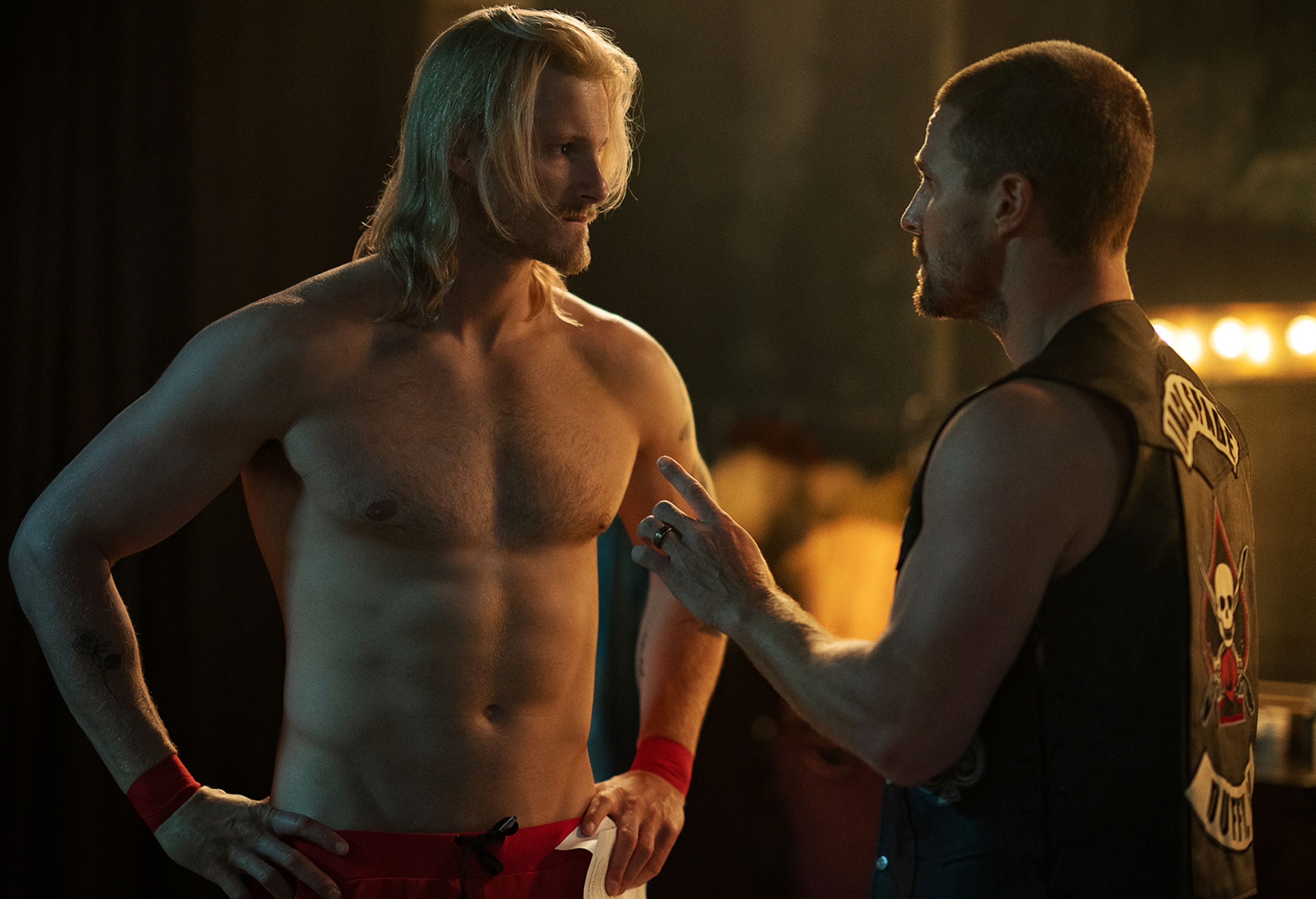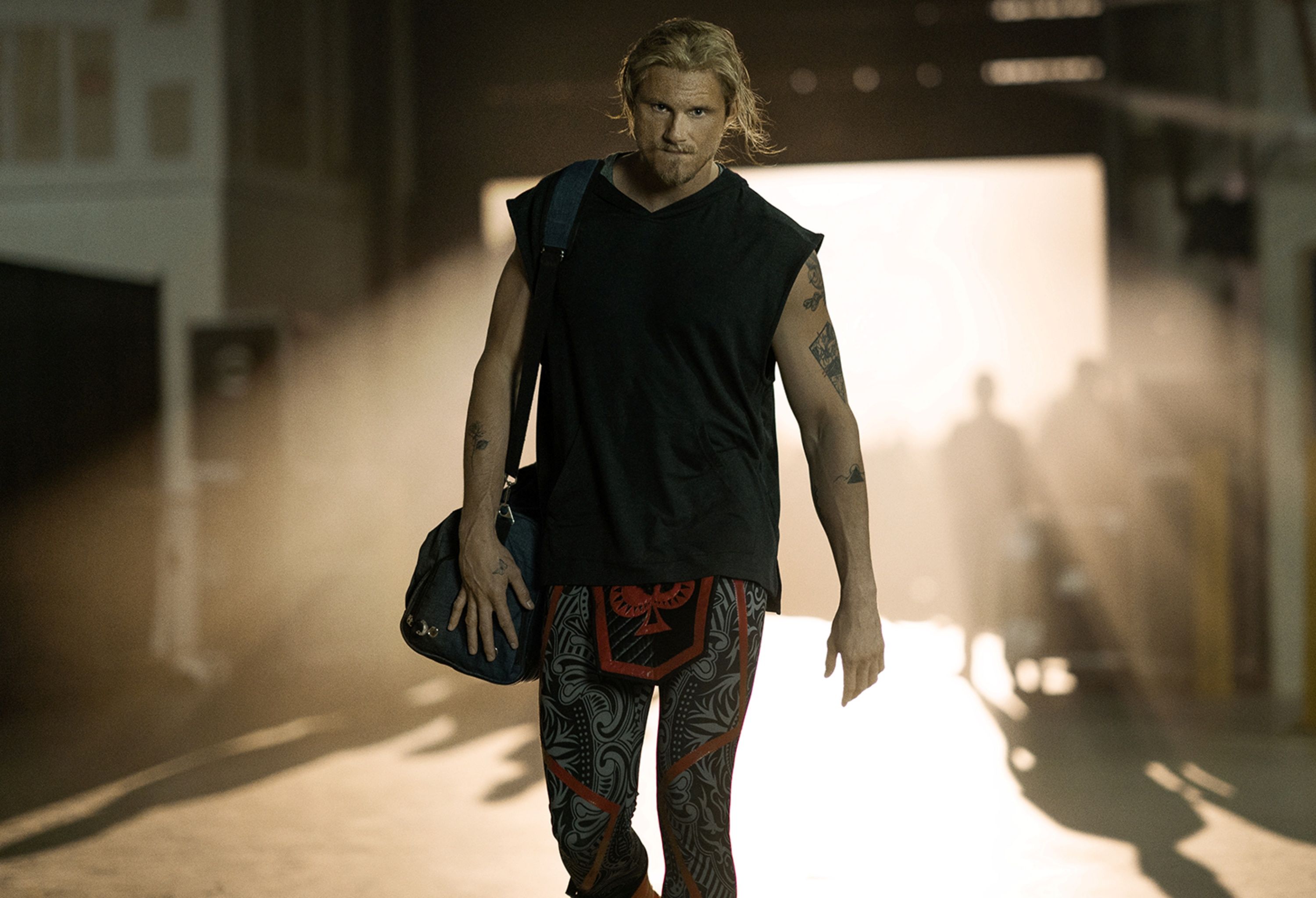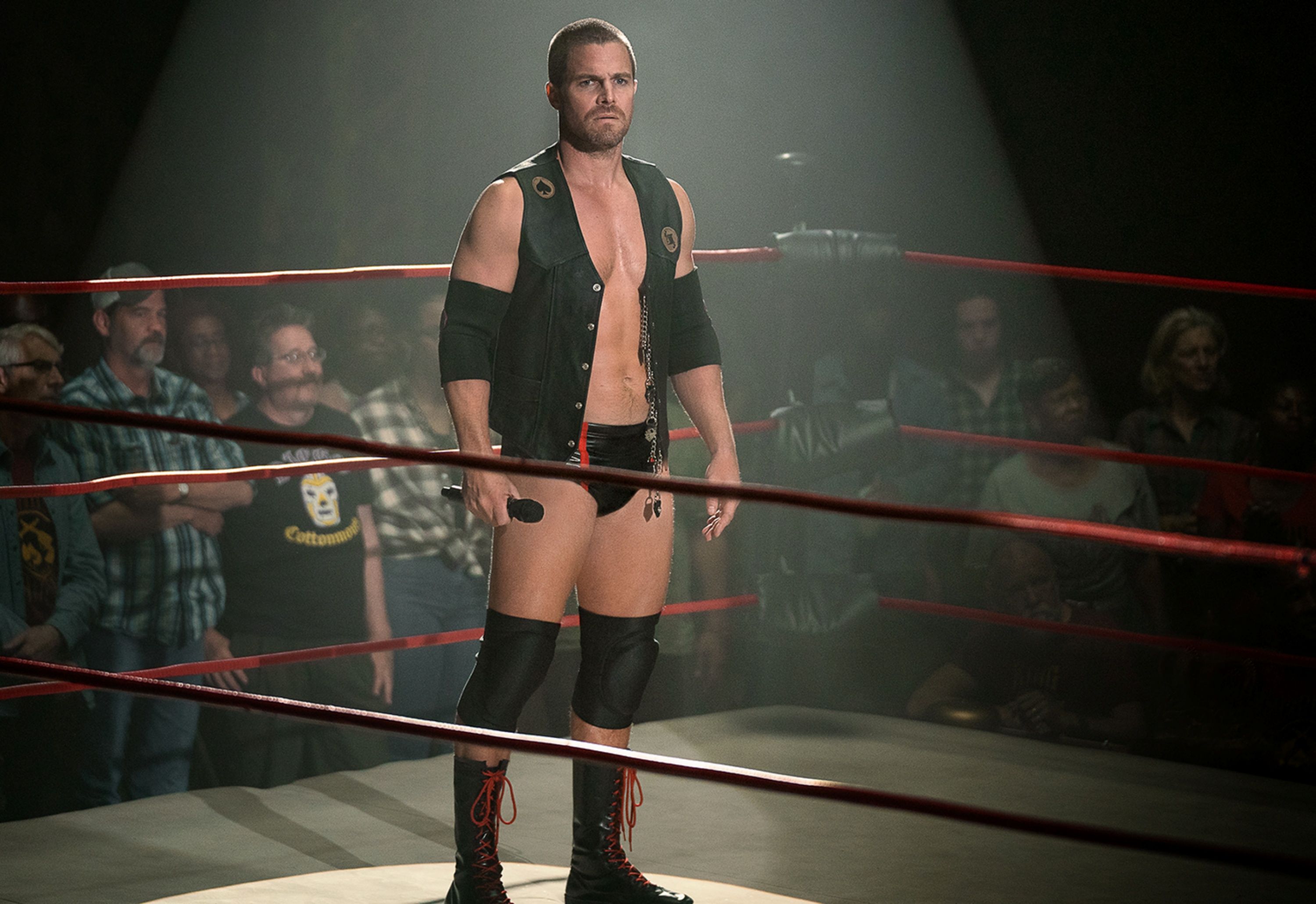The Big Picture
- Heels is more than just a wrestling show, it delves into themes of identity and family, creating a rich family drama.
- The cast bonded over their shared experience of learning pro wrestling together, which brought them closer.
- The second season of Heels explores the challenge of living up to their father's legacy while finding their own path, and introduces a new wrestling persona for Ace.
In Season 2 of the Starz series Heels, the Spade brothers, stars of the Duffy Wrestling League (DWL) in Georgia, are each on their own journey of self-discovery as they struggle to understand their place within their late father’s legacy. While Jack (Stephen Amell) is doing everything possible to keep the DWL afloat, Ace (Alexander Ludwig) wants to find his own voice, even if that doesn’t necessarily align with what his brother wants.
During this interview with Collider, co-stars Amell and Ludwig talked about how Heels is so much more than just a wrestling show, the bonding experience that comes from spending time in the gym with your castmates, the challenge of living up to their father’s legacy while also putting their own stamp on the family business, Ace’s new wrestling persona, exploring the dynamic between these brothers, and what was it like to shoot the match between Jack and Crystal (Kelli Berglund).
This interview was conducted prior to the SAG-AFTRA strike.
Collider: It would be easy to just call this a wrestling show, but it feels much more like a family drama, whether that’s your blood family or your wrestling family, or however you define family. Did you feel a sense of that pretty quickly, in making this show? Did that aspect of it really come together, even before doing a second season?
ALEXANDER LUDWIG: Part of what always drew me to the show, and I think Stephen [Amell] agrees with this, is that I always felt that it wasn’t just a wrestling show. Wrestling is such an incredible world to explore, but underneath it all, it’s about identity and it’s about people, and flawed people at that. As soon as we got to set, especially because a lot of us hadn’t experienced pro wrestling in its fullest, the Stephen had at times, we bonded so quickly over the fact that we were all learning this new, incredible sport together and getting our asses kicked in the process. That brought us really close together. I think the goal, from the beginning, was that it was that it was about a family was a promotion and the big dreams that came with it.
Stephen, whether it’s from playing a superhero or playing a wrestler, does it feel like getting your ass kicked or kicking other people’s asses really does help with the bonding family experience?
STEPHEN AMELL: There’s nothing quite like that first session. There’s nothing quite like any type of shared experience, to build the camaraderie. In a lot of ways, for us, in the first season, it was COVID because the people that we were seeing on a daily basis at work were the only people that we were really seeing. And by the way, it’s not just the people that are wrestlers that are in shape. Alice [Barrett], who plays our mom, and Alison [Luff], who plays my wife, are in the gym. I see them as much as I see Alexander, and I see Alexander a lot. Everyone has really embraced this as a challenge, and that’s made us all feel really close. This show really is about family. If you take away the wrestling and the thirst for fame and for getting out of the small town, you have Jack with what should be this monumental night, that’s the most successful night and the biggest night of impact for the DWL since the heyday of King Spade and Wild Bill, when they were selling out the dome every night and really cooking, that should be it. And yet, Jack has nobody to celebrate with. He goes home to an empty house. If the state fair stops in the middle of South Georgia, but no one’s around for you to share it with, it doesn’t really happen.
How challenging is it for these guys to live up to legacy while not becoming everything they didn’t like about their father and the way that he did things? How hard is it really for them to find the balance, where they can make it their own, but live up to what they think they should be living up to?
AMELL: At the very least, in the second season, there’s an acknowledgment that, no pun intended, but heavy is the head that wears the crown. In the first season, we saw Jack being single-minded and we saw Ace being, at least relative to what he is in the second season, a little less mature. You were thinking, “What’s up with these guys? What’s their issue? What are they dealing with?” Well, in the second season, right from the jump, we see pretty explicitly, exactly what they’re dealing with and exactly why they are the way that they are. It’s not an excuse, but you do start to understand the Spade boys a little bit better, which I think will be fun for the audience.
Alexander, do you think it helps with your character to be able to form a bit of a different persona for himself and explore himself in a way he hasn’t before, now that some pieces of his life have come together more than he was aware of before?
LUDWIG: Totally. What you said about legacy was really interesting. The only way out for Ace is in. For so long, he’s been trying to appease everyone else and he’s let in the external things around him. I think that a lot of people can relate, including myself, to trying to validate who he is, as a person, and it’s only when he finally comes to terms with the fact that he doesn’t have to live up to his father’s legacy and he doesn’t have to be his dad or what his dad wanted him to be, and he just has to be him, that you finally start to see an inkling of the greatness that is inside Ace and that is inside Jack. That is the true underlying story of all this. The path is suddenly being paved to what this promotion could be on a national level and what these people could be, as brothers and as members of this family. Ace creating this new persona is almost him being reborn, in a lot of ways, and coming into himself.
There’s the person that everyone expects you to be and the person that you actually are, and those two things can be very vastly different from each other.
AMELL: Exactly.
Do you guys have faith that these brothers, even with the tension that they have or the clashes that they have with each other, will still always find their way back to each other, or do you also feel like they need to work a little more at letting the other one know that they actually matter to them?
AMELL: Can both be true?
Of course.
AMELL: I think both things are true. We have this wonderful scene, in the early part of the season, where Ace is looking at Jack and saying to him, not in these exact words, “I love you and you’re my brother, and I appreciate you coming all the way out here, but you’re a real piece of shit.” And I think both things can be true. There’s something in that exchange, because it’s honest, that helps the process along. It’s a relationship that’s on the mend, but it’s like any relationship. Jack broke a trust that should be pretty untouchable, and preyed on emotions and things that brothers know, and that’s sacred. That’s like doctor-patient privilege, but on an emotional and spiritual level. There’s no undoing that, but you can move forward.
LUDWIG: There’s this unflinching loyalty to one another, underneath it all. They might even hate each other at the moment, and I mean really hate each other, but if one of their lives was ever in danger, it wouldn’t even be a question. And I don’t even think they would give themselves a second to think about it. It would just be instinctual. And I think it’s the same way with a lot of families. Even in the ones that are more tumultuous, there’s something very strong about blood, and there’s something very strong about having grown up together and having suffered the same trials and tribulations alongside each other.
There’s something so fascinating about watching wrestling. Because I’ve been a dancer since I was a little child, I see the choreography and the movement of it, and I’m just really intrigued by that. Stephen, when it came to the match in episode two, between Jack and Crystal, what was that like to do? It’s so interesting to watch Crystal be so eager to prove herself, but what was that like to shoot and be a part of?
AMELL: That was great. Kelli [Berglund] was great. She was actually a real trooper on that one. With the wrestling matches, you have the best plans, but then you get there on the actual day and you’re dealing with the logistics of moving people around and a finite amount of time. Kelli was amazing there. The key to that match, and in any wrestling match where there’s a huge discrepancy in size, is that you have to create a gimmick. We have the ladder, which is a gimmick, but Crystal is very skilled, so we had to figure out how she would compete with Jack, just from a physical standpoint. You can suspend disbelief. It is pro wrestling. So, we came up with the idea that she would compete because of Jack’s ego. His hubris constantly leads to him turning his back or letting his guard down, and she can come in. I don’t know if that was my favorite part of the second season, but it might have been the most fun part of the second season for me.
Heels airs on Friday nights on Starz.





0 Comments